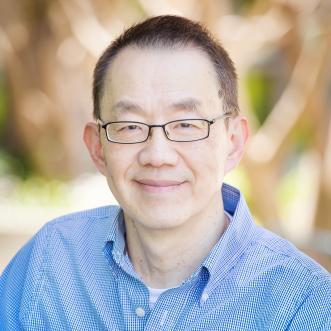Morgan Sheng wins Julius Axelrod Prize for distinguished achievements in neuropharmacology

Morgan Sheng
The Society for Neuroscience has announced that Morgan Sheng, MBBS is the recipient of the 2020 Julius Axelrod Prize. The prize honors distinguished achievements in neuropharmacology or a related area in addition to exemplary efforts in mentoring young scientists.
Sheng is the co-director of the Stanley Center for Psychiatric Research at the Broad Institute of MIT and Harvard, Professor of Brain and Cognitive Sciences, and an affiliate member of both the Picower Institute for Learning and Memory and the McGovern Institute for Brain Research. During his extremely productive career, Sheng has transformed our understanding of synapse biology and dendritic spine plasticity, elucidating mechanisms behind normal processes like learning and memory as well as neurological diseases. In addition to discovering or making key findings about multiple postsynaptic density proteins and plasticity mechanisms (such as, PSD- 95, Shank, NMDA receptor signaling and AMPA receptor trafficking, to name only a few), Sheng revealed the quantitative arrangement and shape of these proteins within the synapse. Many of the synaptic proteins he discovered are implicated in diseases ranging from neurodevelopmental disorders to neurodegenerative diseases; he has led efforts to develop treatments for Alzheimer’s disease and Parkinson’s disease and is now engaged in a multidisciplinary effort towards understanding disease mechanisms and developing new therapies for schizophrenia and bipolar disorder.
“Dr. Morgan Sheng’s work has revolutionized our understanding of the synapse, forming the basis of the postsynaptic density as a network of proteins controlling signaling and dendritic spine morphology,” said Society for Neuroscience President Barry Everitt, PhD. “Through his passionate mentoring of his students and postdocs, he has also led a new generation of neuroscientists to pursue their own groundbreaking work.”
In addition to his pioneering research, Sheng has mentored over fifty scientists, including graduate students and postdoctoral fellows from around the world. Thanks to his teaching and style of encouraging independence, many are now world-leading neuroscientists making remarkable contributions in their own right.
Supported by an endowment from the Eli Lilly and Company Foundation, the Julius Axelrod Prize includes an award of $30,000.

